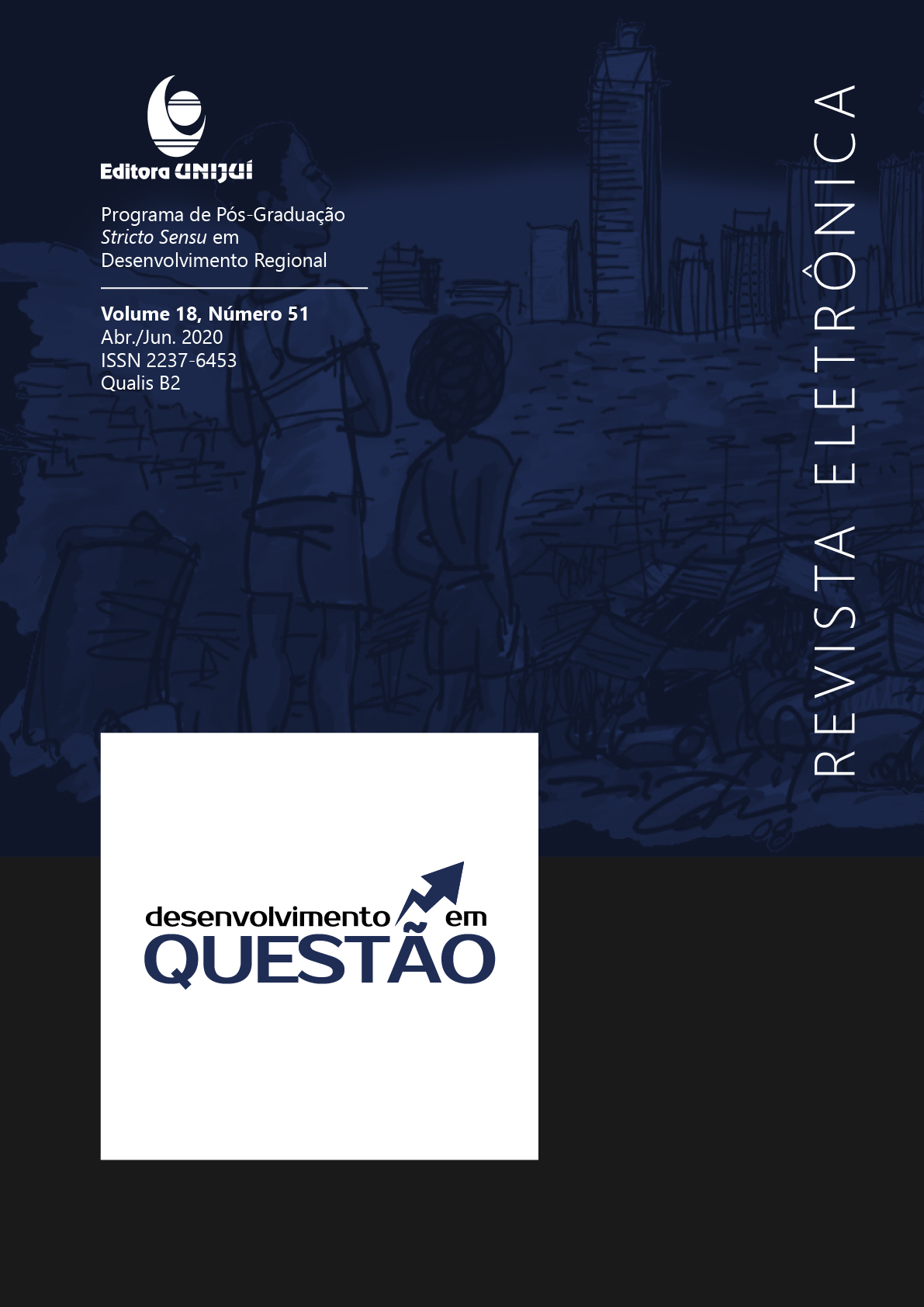OBSERVING THE TERRITORIAL DYNAMICS OF EMPLOYMENT AND JOB DISPLACEMENT IN THE VALE DO RIO PARDO REGION
DOI:
https://doi.org/10.21527/2237-6453.2020.51.186-209Keywords:
Employment: Commuting to work; Territorial dynamics; Regional development; Vale do Rio Pardo.Abstract
The analysis of the territorial dynamics of employment and commuting to work in the intraregional space helps to understand the territorial development of a given region. In this article, we analyze how the dynamics of employment and commuting among the municipalities of the Vale do Rio Pardo region, a region located in the center of the state of Rio Grande do Sul, are presented. The region presents unequal levels of economic dynamism among municipalities and is vertically integrated with the global tobacco market. The secondary data used were obtained from IBGE (2010) and CAGED (2010). Data organization, based on the use of graphs, tables and thematic maps, allowed the analysis of the temporal and spatial dynamics of employment and commuting to work in the regional territory, through the identification of the different levels of economic centrality and the displacement flows. commuting to work in the regional territory. Such dynamism is not spatially homogeneous through the concentration of employment in the average city of Santa Cruz do Sul and its unequal spatial distribution in the territory, promoting commuting flows with different intensities and contents, among the municipalities of the region.
Downloads
Published
How to Cite
Issue
Section
License
By publishing in Revista Desenvolvimento em Questão, authors agree to the following terms:
All works are published under the Creative Commons Attribution 4.0 International License (CC BY 4.0), which allows:
Sharing — to copy and redistribute the material in any medium or format;
Adaptation — to remix, transform, and build upon the material for any purpose, even commercially.
These permissions are irrevocable, provided that the following terms are respected:
Attribution — authors must be properly credited, a link to the license must be provided, and any changes made must be indicated.
No additional restrictions — no legal or technological measures may be applied that legally restrict others from doing anything the license permits.
Notices:
The license does not apply to elements that are in the public domain or covered by legal exceptions.
The license does not grant all necessary rights for specific uses (e.g., image rights, privacy, or moral rights).
The journal is not responsible for the opinions expressed in the articles, which are the sole responsibility of the authors. The Editor, with the support of the Editorial Board, reserves the right to suggest or request modifications when necessary.
Only original scientific articles presenting research results of interest that have not been previously published or simultaneously submitted to another journal with the same purpose will be accepted.
Mentions of trademarks or specific products are intended solely for identification purposes and do not imply any promotional relationship by the authors or the journal.
License Agreement (for articles published from 2025 onward): Authors retain the copyright to their article and grant Revista Desenvolvimento em Questão the right of first publication.











